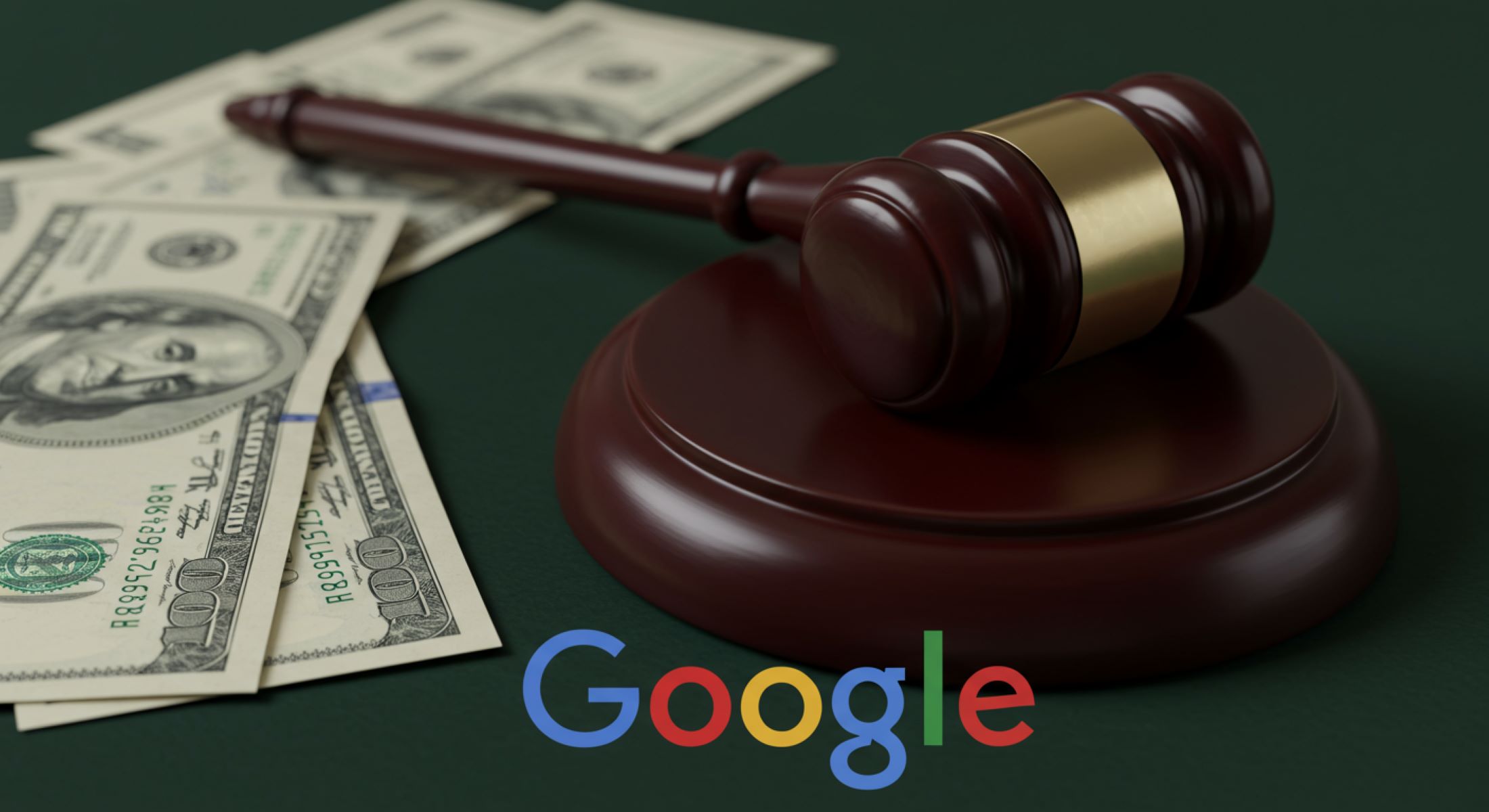Google has been at the center of multiple antitrust investigations worldwide. Governments and regulatory bodies have scrutinized its business practices, particularly its multibillion-dollar agreements that allegedly stifle competition. But what exactly are these violations, and why are they such a big deal? Let’s break it down step by step.
What Is Antitrust Law?
Antitrust laws are designed to protect the competitive process and ensure a fair marketplace where businesses can thrive based on their abilities and innovation, rather than the size of their financial resources or market power. These laws aim to prevent monopolistic behavior, where a single company controls an entire market, stifling competition and harming consumers by reducing choices and driving up prices. In essence, antitrust laws exist to keep the playing field level so that new and existing competitors can survive and grow, providing consumers with more options and better services.
The core objective of antitrust laws is to promote competition, which in turn drives innovation, lowers prices, and improves the quality of products and services. Without these laws, dominant companies could engage in unfair practices such as price-fixing, predatory pricing, or creating barriers to entry for smaller competitors. These practices not only harm competitors but ultimately lead to fewer choices and higher prices for consumers. For example, if one company monopolizes the market, it can dictate the price of goods or services, leaving consumers with no other affordable options.
In the case of Google, regulatory bodies claim that the company has used its immense wealth and market dominance to eliminate or block competition, particularly through exclusive contracts and agreements that favor Google over potential rivals. These exclusivity deals are seen as a way for Google to prevent competitors from gaining access to critical market space or consumer bases, ensuring that Google remains the dominant player. For example, paying large sums to companies like Apple to remain the default search engine on iPhones is one such tactic. These agreements often lock out other search engines or digital services, giving Google an unfair advantage and limiting consumer choice.
By leveraging its financial resources and strategic business agreements, Google is accused of building a moat around its core services, which prevents competitors from flourishing. This is a clear example of the potential dangers that arise from market dominance—without antitrust laws in place to regulate these practices, a company like Google could continue to solidify its power, making it nearly impossible for smaller companies to compete. This is why antitrust investigations and legal actions are so important—they ensure that competition remains healthy, allowing businesses and consumers alike to benefit from a more open and fair market.
The Core of Google’s Antitrust Violations
| Violation Type | Alleged Practice | Impact on Competition | Legal Allegations | Example/Case Study |
| Search Engine Dominance | Google pays billions to stay as the default search engine on mobile devices and browsers. | Limits consumer choice and access to rival search engines. | Google stifles competition by preventing other search engines from gaining significant market share. | Google reportedly pays Apple $18-20 billion annually for default search engine status on iOS devices. |
| Digital Advertising Monopoly | Google controls a significant portion of online advertising, reducing space for competitors. | Smaller ad networks struggle to compete, and advertisers have fewer choices. | Google is accused of using its dominance to set high prices and restrict the entry of new ad tech companies. | Google’s dominance in ad tech makes it difficult for new advertising platforms to break in. |
| Self-Preferencing | Google allegedly ranks its own products and services higher in search results. | Creates an unfair advantage for Google’s own services, leaving little room for competitors. | Google’s search algorithms are designed to give its products, such as Google Shopping, a priority, harming other businesses. | Google was fined by the EU for prioritizing Google Shopping results over competitors in search rankings. |
| Restrictive Agreements | Google uses contracts with manufacturers and telecom companies that restrict the use of competing products. | Prevents rivals from entering key markets and leveraging their services. | Google allegedly forces manufacturers to install its apps exclusively, denying access to competitors. | Google reportedly required Android manufacturers to pre-install Google apps, limiting access for other companies. |
| Data Control | Google leverages vast amounts of user data for its own advantage. | Diminishes opportunities for competitors who do not have access to similar data. | Google uses data from its vast services to outpace competitors, creating an unfair market advantage. | Google’s access to consumer data through its services like Gmail and YouTube gives it a competitive edge. |
The Apple Deal – A $20 Billion Monopoly Move?
- Google pays Apple between $18-20 billion annually to remain the default search engine on iPhones, iPads, and Macs.
- This deal guarantees Google maintains its dominance in mobile search markets.
- By being the default search engine, Google stifles the potential growth of competing search engines.
- Apple is prevented from developing its own search technology or endorsing other search engines, maintaining Google’s monopoly.
- The agreement restricts consumer choice by making Google the pre-selected search engine, without giving users an easy alternative.
- If this deal didn’t exist, Apple might have created its own search engine or integrated a competitor, potentially breaking Google’s dominance in mobile search.
- Apple profits heavily from this agreement, benefiting financially while reducing the opportunity for other search engines to capture market share.
Android’s Pre-Installed Google Services
Google’s Android operating system is used by over 70% of smartphones worldwide, which gives the company substantial control over the mobile market. However, the dominance of Android comes with a significant catch. Most Android devices, including popular models from manufacturers like Samsung, come with Google’s search engine, Chrome browser, and Play Store pre-installed. This strategy ensures that users are locked into Google’s ecosystem from the moment they set up their devices.
Through strategic agreements with Android manufacturers, Google is able to dictate the pre-installation of its services, effectively limiting the ability of competing search engines and app stores to gain a foothold. These arrangements prevent other services from being easily accessible, making it more difficult for users to switch to alternative search engines or app stores. By controlling the default apps on Android devices, Google limits consumer choice and reduces the visibility of rival services.
Furthermore, Google allegedly controls how its Android partners implement search and advertising services, ensuring that Google’s own services dominate and limiting the room for competitors to offer similar solutions. This arrangement is seen as a way for Google to maintain its monopoly, as it not only prevents competitors from gaining traction but also strengthens its hold over the mobile search and app marketplace.
These tactics serve to reinforce Google’s position in the market, making it harder for smaller companies to compete and stifling innovation. The pre-installation of Google services on Android devices effectively locks users into Google’s ecosystem, leaving little opportunity for rivals to challenge its dominance in mobile search, apps, and digital advertising.
Google’s Grip on Digital Advertising
| Advertising Platform | Role of Google in the Market | Impact on Competitors | Legal Allegations | Example/Case Study |
| Google Ads (formerly AdWords) | Google Ads is the largest advertising platform, controlling a significant share of the digital ad space. | Competitors struggle to compete due to Google’s sheer dominance. | Google allegedly forces advertisers into its ecosystem, reducing opportunities for rivals. | Many businesses rely solely on Google Ads for digital marketing, leaving little room for smaller ad platforms. |
| AdSense | AdSense allows websites to display Google ads and earn revenue, making Google the gatekeeper of ad content. | Other ad networks are often left with less visibility and lower returns. | Google allegedly limits access to premium ad inventory and restricts access for competitors. | Websites with substantial traffic often choose Google AdSense because it’s seen as the most lucrative and reliable option. |
| Google Ad Exchange | The Google Ad Exchange is the primary marketplace for digital ad buying and selling. | Smaller ad networks and platforms struggle to access inventory and data. | Google’s dominance in the ad exchange reduces market access for smaller ad platforms. | Many publishers and advertisers rely on Google’s exchange to buy and sell ad space, reducing room for new entrants. |
| Exclusivity Agreements | Google reportedly secures exclusive contracts with major publishers and advertisers. | Google locks out competitors from premium ad inventory and exclusive deals. | Google allegedly uses these agreements to keep competitors from accessing key market opportunities. | Google reportedly has exclusive deals with large publishers, making it harder for other ad networks to gain traction. |
| Insider Data | Google benefits from access to vast amounts of user data through its advertising network. | Smaller advertisers have less access to valuable consumer insights. | Google’s access to data is seen as an unfair advantage, allowing it to outpace competitors. | Google’s ad network uses vast amounts of user data to target ads more effectively than competing platforms. |
How Google’s Deals Hurt Consumers and Businesses
- Higher Costs for Advertisers: Google’s control over the digital advertising space gives it the power to limit competition, which means advertisers have fewer choices. With limited options, Google can charge higher ad rates, which drives up advertising costs for businesses. Ultimately, these increased costs are passed on to consumers in the form of higher prices for goods and services.
- Limited Search Engine Choices: For many iPhone and Android users, Google is the default search engine, making it inconvenient to switch to alternatives like Bing or DuckDuckGo. Google’s agreements with device manufacturers and browser developers ensure that it remains the default option, limiting user choice and making it harder for competing search engines to gain traction.
- Innovation Stifling: Google’s dominance in the search and advertising markets makes it difficult for tech giants like Microsoft or independent search engines to break into the industry. By controlling the market and securing exclusive deals, Google prevents competitors from accessing essential user data and gaining visibility, effectively stifling innovation and limiting the development of alternative technologies.
Legal Battles Against Google
In 2023, the U.S. Department of Justice (DOJ) filed a significant antitrust lawsuit against Google, marking a pivotal moment in the ongoing scrutiny of the company’s business practices. The lawsuit centers around several key allegations, including the claim that Google paid Apple billions of dollars to secure its position as the default search engine on iPhones and iPads. The DOJ also accuses Google of preventing smartphone manufacturers from promoting alternative search engines on their devices, thereby blocking competition. Additionally, Google’s dominance in the digital advertising space is under fire, with allegations that the company used its advertising power to eliminate competition. If Google loses the case, it could face substantial financial penalties and be forced to alter its business practices, potentially leading to major changes in how it operates within the search engine and advertising markets.
Across the Atlantic, the European Union has also taken action against Google’s alleged antitrust violations, issuing hefty fines for the company’s monopolistic behavior. The EU has fined Google over €8 billion for various antitrust infringements. One of the most significant fines was €4.3 billion, which was imposed for Google’s abuse of its dominance in the Android ecosystem. The European regulators found that Google had unlawfully forced smartphone manufacturers to pre-install its apps and services, giving the company an unfair advantage. Another €2.4 billion fine was levied against Google for prioritizing its own Google Shopping results in search rankings, disadvantaging competitors. Additionally, the EU fined Google €1.49 billion for restricting competition in online advertising, accusing the company of using its dominance to stifle other ad platforms. The European Union continues to monitor Google’s business practices closely and has made it clear that more fines or regulatory actions could follow if the company’s behavior does not change.




